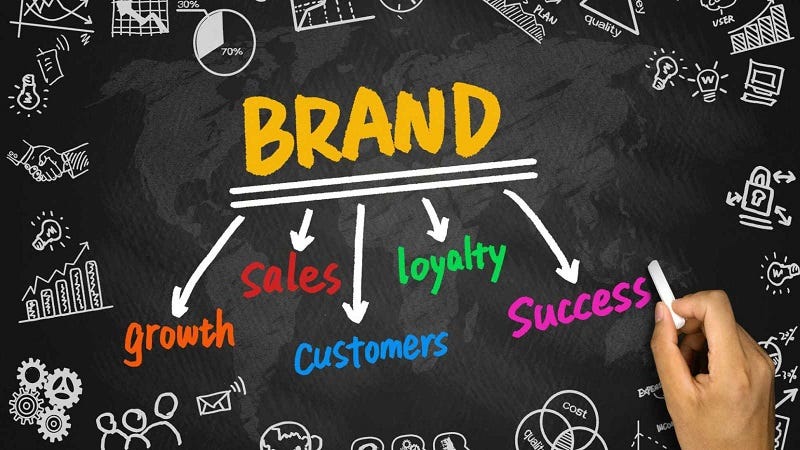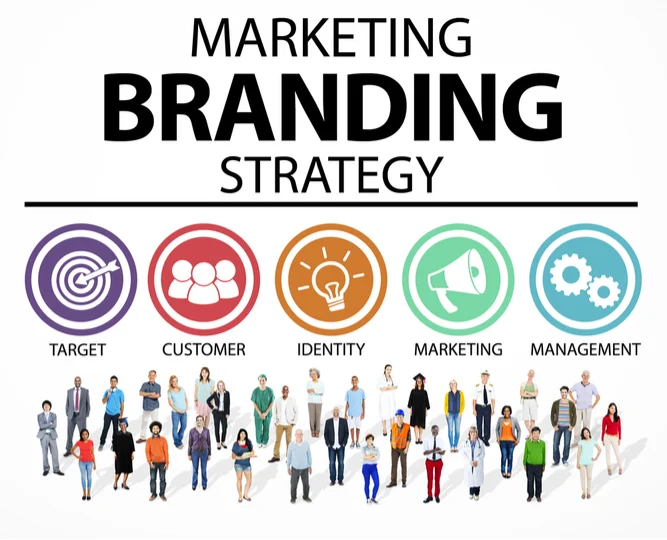Introduction
Brands With Good Marketing: Marketing is the cornerstone of brand recognition and consumer loyalty in today’s fast-paced digital economy. From social media storytelling to product placement and influencer collaborations, brands that master the art of communication and emotional connection often find themselves at the top of their industries.
Across sectors such as technology, fashion, beverage, automotive, and skincare, a select group of brands consistently outshine others by crafting unique marketing narratives, leveraging data intelligently, and responding to shifting consumer behavior with agility. These brands not only promote their products—they build identities, cultures, and movements that consumers want to be part of. This post dives deep into the marketing DNA of globally admired brands and explores what makes their strategies stand out. Please visit

Apple: Simplicity, Experience, And Ecosystem
Brands With Good Marketing: Apple’s marketing is arguably one of the most iconic in the tech world. The brand’s focus on simplicity, clean design, and emotional appeal forms the foundation of its approach. Apple rarely bombards consumers with technical jargon. Instead, it presents its products through experiences—how an iPhone improves your photography or how a MacBook simplifies creativity. The “Shot on iPhone” campaign exemplifies Apple’s ability to turn users into ambassadors. Its commercials are sleek, emotionally charged, and aspirational, designed to make the user feel empowered and unique.
Another genius move is how Apple manages its ecosystem. Through integration between devices and services, it subtly binds the consumer to its universe. Apple stores and product launches are events of their own, carefully orchestrated to generate buzz. Each marketing element reinforces the brand’s premium image, making it not just a choice but a lifestyle.
Nike: Storytelling And Purpose-Driven Messaging
Brands With Good Marketing: Nike has long been celebrated for its storytelling prowess and emotionally resonant marketing. Rather than simply selling shoes or athletic wear, Nike sells the idea of personal triumph, resilience, and overcoming obstacles. The “Just Do It” slogan has become more than an advertising phrase; it’s a rallying cry for people pushing boundaries, both physically and mentally.
What sets Nike apart is how it blends product marketing with cultural commentary. From featuring Colin Kaepernick in a bold and polarizing campaign to addressing issues of race, gender, and equality in sports, Nike takes a stand. This moral courage has built a fiercely loyal customer base, especially among younger generations who value authenticity and purpose in brands. At the same time, Nike continues to lead through innovation, offering personalized shopping experiences, mobile apps, and community events that deepen engagement.
Coca-Cola: Emotional Branding And Global Localization
Brands With Good Marketing: Coca-Cola is a masterclass in emotional branding. The company’s marketing is built around happiness, celebration, and human connection. Whether it’s the iconic Christmas commercials, the “Share a Coke” campaign, or its consistent use of bright red visuals, Coca-Cola remains top-of-mind across generations. One of the most compelling aspects of Coca-Cola’s marketing is how it localizes global campaigns. In different parts of the world, Coke adapts language, messaging, and even flavors to suit local tastes while maintaining its core brand identity.
The brand has also remained culturally relevant through strategic partnerships and timely themes. For instance, Coke has worked with major music festivals and sporting events to remain part of youthful experiences. Additionally, their eco-conscious efforts are now integrated into marketing campaigns, making sustainability a part of the brand narrative.
Dove: Redefining Beauty Through Social Impact
Brands With Good Marketing: Dove’s Real Beauty campaign revolutionized how beauty brands engage with audiences. Instead of idealizing unrealistic standards, Dove chose to represent real women with diverse body types, ages, and ethnicities. This disruptive strategy resonated widely, earning not only consumer praise but also numerous marketing awards. Dove’s message that “every body is beautiful” moved the conversation from product features to self-esteem, making it one of the most socially impactful campaigns of the 21st century.
By creating an ongoing dialogue about body positivity, mental health, and representation, Dove positioned itself as a brand that understands and advocates for its customers. Their video campaigns often go viral due to their emotional storytelling and authenticity. This trust-building has converted Dove into a household name with emotional equity far beyond soaps and lotions.
Tesla: Innovation-Driven Virality And Cult Following
Brands With Good Marketing: Tesla’s marketing defies conventions. With little to no traditional advertising spend, Tesla relies on product innovation, word-of-mouth, and the influence of its charismatic CEO, Elon Musk. Tesla’s fanbase is passionate, often acting as de facto brand ambassadors. Whether it’s the dramatic unveiling of the Cybertruck or viral videos of Autopilot features, Tesla has mastered the art of creating spectacle and virality around its products.
The brand’s focus on sustainability and technological revolution adds a layer of ideological commitment for consumers. Tesla buyers don’t just purchase a vehicle; they invest in a future. The limited availability of certain models and long waitlists create a sense of exclusivity. Tesla’s marketing thrives on community, disruption, and vision—turning customers into believers and brand advocates.
Airbnb: Community-First Marketing
Brands With Good Marketing: Airbnb transformed from a scrappy startup to a hospitality powerhouse through community-first marketing. The brand focuses on storytelling by highlighting host experiences and guest adventures. Their “Belong Anywhere” campaign made travelers feel at home in the most unexpected places. By promoting inclusivity and cultural exchange, Airbnb positions itself not just as a booking platform but as a bridge between people and places.
Another smart tactic is the use of user-generated content. Guests often share their stays on social media, tagging Airbnb and creating free, authentic publicity. During the pandemic, Airbnb pivoted quickly to market online experiences, keeping the brand relevant. Their ability to shift messaging while staying true to their values has solidified their place among brands with good marketing.

Amazon: Customer-Centric Innovation
Brands With Good Marketing; Amazon’s marketing strategy is heavily built on customer satisfaction, convenience, and data-driven personalization. While not traditionally flashy, Amazon has created a seamless ecosystem that encourages brand loyalty through practical value. Features like one-day shipping, personalized recommendations, and subscription models like Prime are marketed as lifestyle enhancers.
Amazon also invests in influencer partnerships, paid search advertising, and seasonal promotions, but it’s the consistency of the customer experience that makes the marketing effective. Every touchpoint—from order to delivery—feels tailored. The trust built through this efficiency is reinforced through subtle but constant branding, making Amazon synonymous with convenience.
Red Bull: Content-Driven Adventure Branding
Brands With Good Marketing: Red Bull is not just a beverage brand; it’s a media powerhouse. Through events like Red Bull Air Race and partnerships with extreme sports athletes, the company has created a content universe that appeals to thrill-seekers and adrenaline junkies. Their branding leans heavily on high-quality video content, immersive documentaries, and adventure storytelling.
The slogan “Red Bull gives you wings” is less about the drink and more about the spirit it promotes. Red Bull Media House is an internal division that creates jaw-dropping visual content, often rivaling Hollywood productions. This unique content strategy drives consumer engagement, builds lifestyle affinity, and ensures that Red Bull is associated with energy and daring ambition.
L’Oréal: Digital Empowerment And Influencer Power
Brands With Good Marketing: L’Oréal’s marketing strategy is a compelling blend of beauty expertise, digital transformation, and influencer marketing. The brand leverages technology to enhance customer experiences through virtual try-ons, AI-based recommendations, and skin diagnosis apps. These innovations are backed by bold campaigns like “Because You’re Worth It,” which speak to self-empowerment and individuality.
On social platforms like Instagram, TikTok, and YouTube, L’Oréal collaborates with both micro- and macro-influencers to maintain relevance across demographics. The brand also invests in cause-based marketing, supporting women in STEM and sustainability projects. By integrating tech, empowerment, and purpose, L’Oréal appeals to a wide yet targeted audience with precision.
IKEA: Consistency, Sustainability, And Relatability
Brands With Good Marketing: IKEA’s marketing approach is rooted in simplicity, affordability, and design relevance. From their famous catalogs to digital ad campaigns, IKEA emphasizes real-life living situations, offering practical and stylish solutions. Their content often includes humorous or emotionally touching stories that reflect daily life, making the brand feel approachable and real.
The company also focuses heavily on sustainability, showcasing their commitment to eco-friendly products and production methods. IKEA’s immersive in-store experiences, community events, and digital tools (like 3D room planners) all contribute to a cohesive and consumer-first marketing strategy. Their emphasis on democratic design—great quality at low prices—cements their brand trust and universal appeal.
Google: Data-Led, Emotionally-Aware Marketing
Brands With Good Marketing: Google’s marketing cleverly combines data accuracy with emotional appeal. Campaigns like “Year in Search” showcase not only the company’s search capabilities but also the emotional landscape of global society. These video compilations are powerful, offering a reflection of what humanity collectively experiences each year.
From Gmail to Maps and Docs, each Google product is introduced and marketed with clear use-cases, clean design, and high utility. Their branding is universally friendly and inclusive, designed to appear neutral and helpful. Google also engages in thoughtful cause marketing, supporting education, sustainability, and equality initiatives. The brand’s omnipresence is less about aggressiveness and more about reliability—an understated but potent marketing success.
LEGO: Creative Engagement And Fan-Centered Storytelling
Brands With Good Marketing: LEGO has successfully transcended its identity as a mere toy brand by creating an imaginative ecosystem fueled by creativity, community, and collaboration. Its marketing revolves around storytelling and immersive experiences, particularly through multimedia content like LEGO movies, video games, and user-generated ideas. One of LEGO’s most remarkable marketing feats is the LEGO Ideas platform, which allows fans to submit designs for new sets, vote on their favorites, and potentially see them turned into real products. This participatory model empowers fans and places them at the heart of product development, creating a strong emotional investment.
The brand’s ability to connect across generations through nostalgia and innovation is a critical component of its marketing success. Whether appealing to adult collectors or young builders, LEGO strikes a balance between education and entertainment. Strategic partnerships with pop culture icons such as Star Wars, Marvel, and Harry Potter have further amplified the brand’s visibility and relevance. Through imaginative content and user-driven marketing, LEGO has built one of the most passionate and engaged fan communities in the world.
Spotify: Hyper-Personalization And Cultural Relevance
Brands With Good Marketing: Spotify has revolutionized the music streaming industry, not just through its product offering but through its deeply personalized marketing strategies. The brand’s annual “Spotify Wrapped” campaign is a viral hit that turns users’ listening data into a shareable, visually appealing year-in-review. This data-driven content not only increases engagement but transforms users into brand advocates, organically spreading the Spotify name across social platforms.
Spotify’s success also lies in its ability to remain culturally relevant. Whether it’s creating playlists around trending TV shows, supporting marginalized artists during heritage months, or partnering with influencers and musicians for exclusive content, Spotify weaves itself into the fabric of modern life. Their targeted advertising based on user preferences, moods, and behaviors allows for deeply customized communication, making users feel understood on an individual level. Spotify’s marketing exemplifies how technology and empathy can merge to deliver meaningful brand experiences.
Patagonia: Activism As Brand Identity
Patagonia stands out as a brand where marketing and activism are indistinguishable. The company’s commitment to environmental sustainability is not just a campaign; it is the brand’s core identity. From asking customers not to buy their products to suing the U.S. government over land protection, Patagonia takes bold stances that often place values over profit. These acts of brand bravery have earned deep respect and loyalty from eco-conscious consumers.
Marketing for Patagonia focuses on storytelling that aligns with its mission. Documentaries, blogs, and photo essays highlight environmental issues, outdoor exploration, and sustainable living. Every piece of content educates while promoting Patagonia’s values. Even product labels include information about the environmental impact of each item, reinforcing transparency and trust.

Conclusion
The most successful brands with good marketing are those that understand their audiences deeply, embrace innovation, and align with authentic values. Whether it’s Apple’s minimalist elegance, Nike’s purpose-driven storytelling, or Coca-Cola’s celebration of joy, these brands invest in emotional resonance as much as in product performance. They don’t just sell—they connect, inspire, and evolve with the consumer. The blueprint is clear: great marketing is no longer about pushing products. It’s about creating relationships, nurturing trust, and offering experiences that make customers feel seen, heard, and valued. As industries become more crowded and consumers more discerning, these brands set the benchmark for what it means to market with meaning.

